Education is often hailed as the cornerstone of a nation's progress—a catalyst for social mobility and economic development. But in Nigeria's Federal Capital Territory (FCT), this promise remains elusive for thousands of children. The Federal Capital Territory Universal Basic Education Board (FCT-UBEB), under the Universal Basic Education Commission (UBEC), was created to ensure that every child receives free, compulsory, and universal basic education. However, the grim reality on the ground tells a different story—one of neglected infrastructure, inadequate resources, and a mounting crisis that continues to deny children their right to quality education.
This report by Safer-Media Initiative (SMI) exposes the failures of FCT-UBEB, revealing how decaying facilities and insufficient teacher supply contribute to a staggering rise in out-of-school children in the FCT.
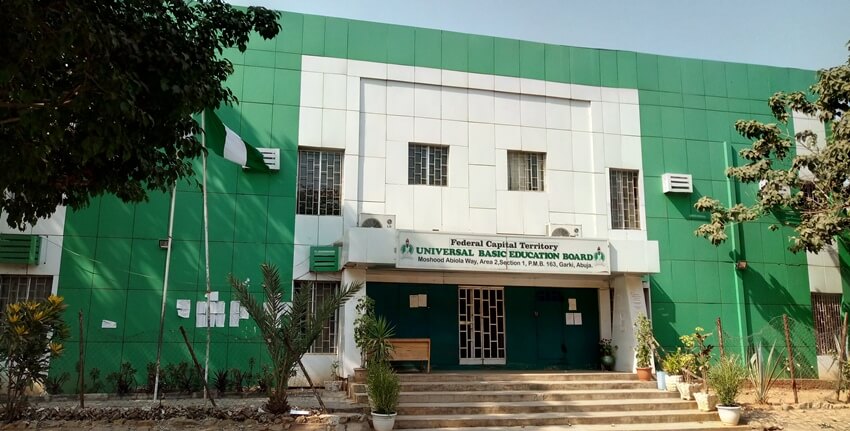
The FCT-UBEB, as outlined on its website, was established to provide free, compulsory, and universal basic education for every child in the Federal Capital Territory. Its objectives include promoting the welfare of teachers, ensuring accountability in the management of funds, and addressing educational disparities.
On paper, these objectives project a vision of excellence. But in reality, these lofty goals have largely remained unmet. The failure stems, in part, from Nigeria's matching grant system—a model where states, including the FCT, are required to provide counterpart funding to access federal grants allocated by UBEC.
In May 2023, UBEC reported that state governments across Nigeria failed to access over ₦46.2 billion in grants meant for public primary and junior secondary education due to their inability to meet counterpart funding obligations. As a result, funds intended to build classrooms, provide learning materials, and train teachers remain idle, while schools in many communities continue to grapple with crumbling infrastructure.
A Tale of Neglect: LEA Gawu

A visit to LEA Gawu in Kuje Area Council reveals a disheartening tale of neglect and despair. The primary school epitomizes the struggles faced by many FCT schools. Stepping into the school is akin to entering a forgotten relic of neglect. Inside the classrooms, broken furniture forces four or five pupils to squeeze onto a single seat. Dusty floors and heat radiating from uninsulated roofs make learning an endurance test. The few teaching aids available sit on the floor, as there is no cabinet to store them.
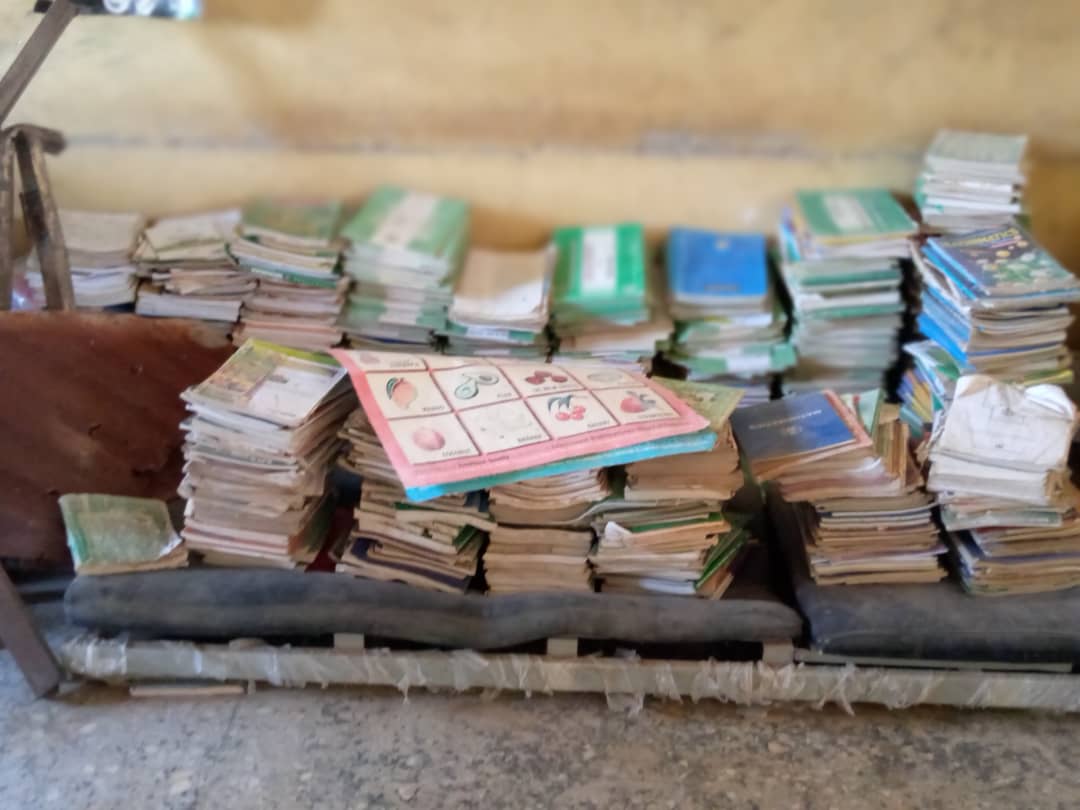
Teachers at LEA Gawu juggle multiple classes and struggle with limited resources. Markus Japheth, a teacher at the school, voices his frustration:
“We try our best with what we have, but how can we give these children the education they deserve when we lack even the basics? The pupils are eager to learn, but they are being failed by a system that has abandoned them.”
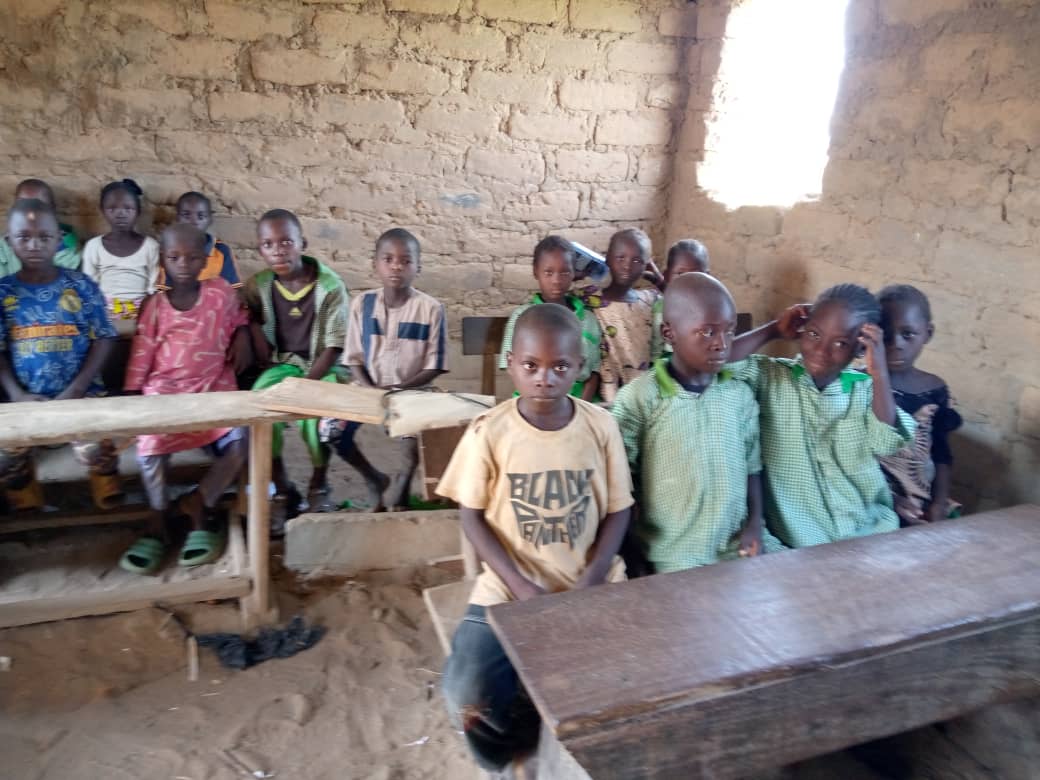
Parents also share their despair. Umar Bello, a local farmer whose son attends the school, laments:
“My child shares a desk with three other children, and sometimes they have to sit on the floor when there’s no space. How can they concentrate in such conditions?”
Cracked Walls, Shattered Hopes: LEA Gadoro
At LEA Gadoro, located in a neighboring community, the situation is equally bleak. Built in the 1980s, the two classroom blocks are now plagued by cracked walls, leaking roofs, and ceilings on the verge of collapse.
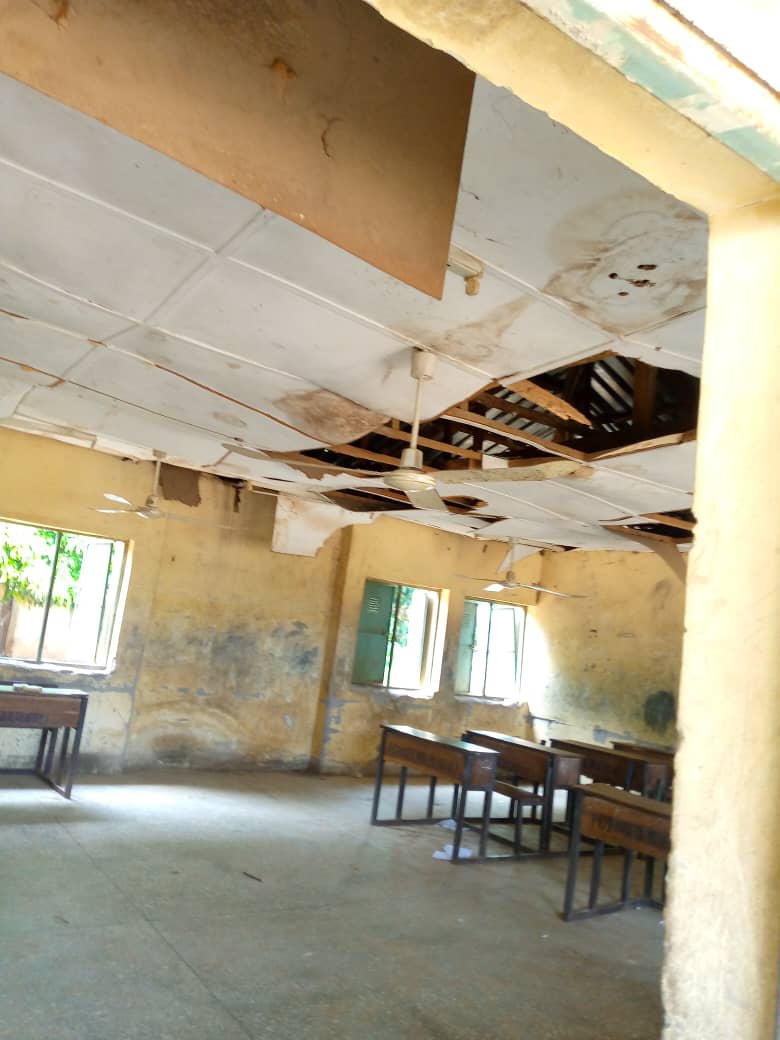
Classroom furniture is in a state of disrepair—many of the seats are broken, forcing four to five children to squeeze onto benches designed for two. When it rains, lessons are often disrupted as children huddle together to avoid getting drenched by water seeping through the roof.
“We have complained severally, but nothing changes,” says Ibrahim Usman, a resident of Gadoro. “The government came once and promised to renovate the school, but that was three years ago. Since then, no one has returned.”
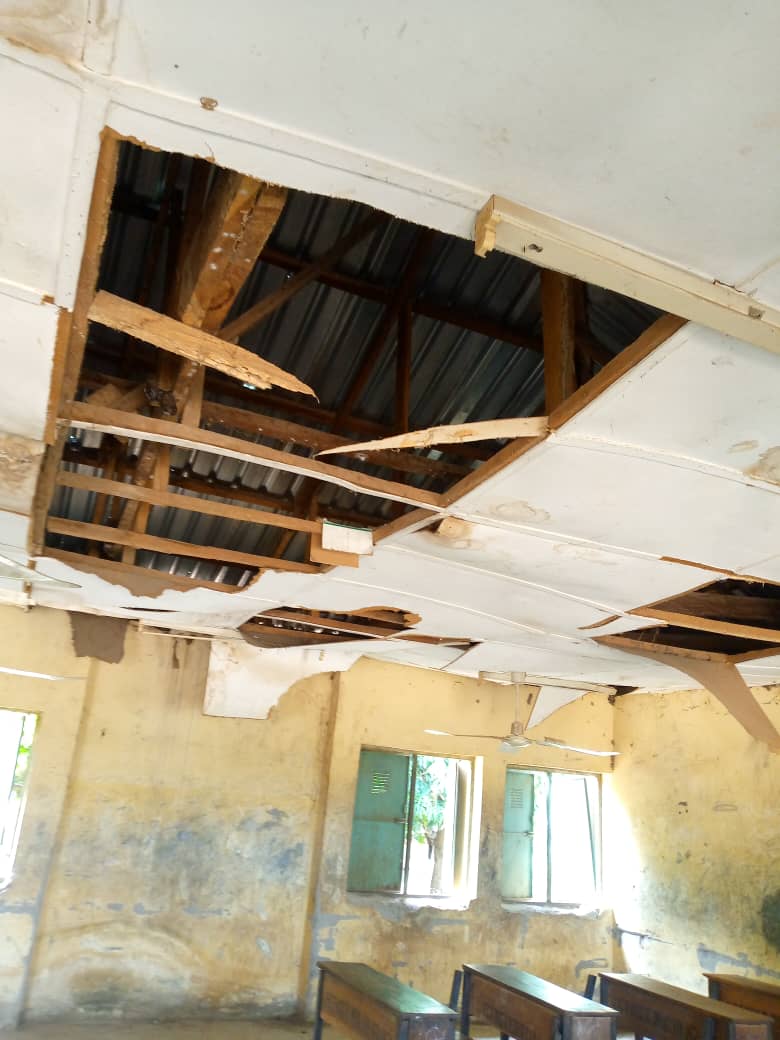
For 12-year-old Fatima Danjuma, the dream of becoming a doctor seems increasingly out of reach:
"How can I study when the roof leaks, and we don’t even have enough books?"
The Teacher Shortage Crisis
In addition to decaying facilities, an acute shortage of qualified teachers plagues schools across the FCT. Educators like Japheth are forced to teach multiple grades simultaneously, diluting the quality of education and leaving pupils deprived of the attention they deserve.
Japheth, who teaches in Gawu, explains the dilemma:
“I teach primary 3 and 5 together because we don’t have enough teachers. It’s difficult to give each class the attention they need. The children suffer because they don’t get the depth of understanding required.”
The lack of professional development opportunities and poor pay further exacerbates the issue, pushing many talented teachers to seek better prospects elsewhere.
Who Bears the Responsibility?
Despite the glaring evidence of neglect, the FCT-UBEB Chairman, Dr. Hassan Sule, in an interview with SMI, defended his administration’s track record.
“The FCT-UBEB has consistently accessed counterpart funding and utilized it effectively. We have ongoing projects across multiple communities,” he said.
Sule did not agree that millions of naira allocated to the FCT for educational development remain unspent. Though the reality speaks differently about how the funds have been used to renovate dilapidated structures, provide learning materials, and recruit more teachers.
The Price of Neglect
Nigeria accounts for one of the highest numbers of out-of-school children globally, with estimates from UNICEF hovering around 20 million. Despite being the seat of power and a symbol of Nigeria’s progress, the FCT is not immune to this crisis.
In rural communities such as Gwagwalada, Kuje, and Abaji, children are often seen hawking goods or engaging in petty trading during school hours. Their absence from classrooms indicates systemic failure that has left their families with few options. Parents cite multiple barriers—lack of infrastructure, overcrowded classrooms, and an insufficient number of teachers—as reasons their children remain out of school.
“We have been forgotten,” laments Anna Obeka, a mother of three in Gwagwalada. “Our children deserve better but look at the state of our schools. How can we send them there with no desks, no books, and no teachers?”
The consequences of neglecting education are monumental. Without immediate action, the vicious cycle of poverty and illiteracy will deepen. Activists like Mrs. Grace Ogbede emphasize the need for stronger oversight and a renewed commitment from FCT authorities. As she points out:
"The funds are there, but the will to utilize them effectively is missing."
A Promise Unkept by FCT-UBEB
Sule, in an interview with SMI, attributed overstretched facilities in the capital territory to insecurity and population influx, arguing that education is a collective responsibility for all Nigerians.
He said there are community-initiated schools in the FCT that start independently before seeking board approval. He, however, assured that ongoing efforts are being made to integrate these schools into the system and address their needs. He showed documents indicating the board's acknowledgment of challenges and a pledge to address schools' requirements. Notably, Gawu LEA School in Kuje Area Council was identified for the provision of blocks of classrooms. Accordingly, Sule said he has established a committee to inspect schools across the FCT, aiming to implement an action plan.
Yet, site visits by SMI to schools like LEA Gawu revealed no visible improvements months after such promises. Sule’s pledge of “ongoing efforts to address their needs” was not yet met.
For children like Fatima and countless others, hope flickers dimly—but it has not yet been extinguished. The question remains: will FCT-UBEB rise to the occasion and fulfill its mandate, or will it continue to leave shattered dreams in its wake?
This report is produced by Safer-Media Initiative under The Collaborative Media Engagement for Development, Inclusivity and Accountability Project (C-MEDIA Project) of the Wole Soyinka Centre for Investigative Journalism (WSCIJ) funded by the MacArthur Foundation.
